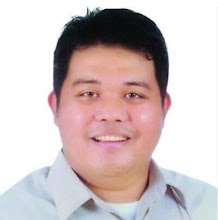Wednesday, January 2, 2008
CLARO M. RECTO

In the early 1950s, Nationalism resurfaced. Recto, a senator, fired the first volley in a speech in 1951. He said that the Philippine government had a "mendicant foreign policy," and allowed Americans to continue their dominant pre-war interests in the financial, commercial, and industrial life of the country. His nationalist sentiments derived from his long-time experience as a member of the House of Representatives in the Batangas district. For a short time, he served as an associative justice in the Supreme Court; a position he gave up to go into private law practice. During the Japanese occupation, he was recruited to serve in the Laurel War Cabinet and, after the war, he was accused of collaboration. From his Senate seat, he denounced legislation that allowed the encroachment of American business and political elements into the domestic and foreign affairs of the Philippines. One piece of legislation was the parity rights clause in the Bell Trade Act, which he described as a surrender of the Philippine birthright. In later years, his speeches continued to emphasize themes of political and economic nationalism for which he was branded anti-American. He died of a heart attack in Rome, while on a cultural mission to Europe and Latin America.
BENIGNO S. AQUINO

Benigno Servillano "Ninoy" A. Aquino, Jr. (November 27, 1932 – August 21, 1983) was a Philippine senator and a leading oppositionist to the autocratic rule of Ferdinand Marcos. He was assassinated at the Manila International Airport (now named the Ninoy Aquino International Airport in his honor) upon returning home from exile in the United States. His death catapulted his widow, Corazon Aquino, to the limelight and the presidency, subsequently replacing the 20-year-old Marcos regime.
Benigno Aquino was born in Concepcion, Tarlac, to a prosperous family of hacienderos (landlords). His grandfather, Servillano Aquino, was a general in the revolutionary army of Emilio Aguinaldo while his father, Benigno Aquino, Sr. (1894-1947) was a prominent official in the World War II Japanese-organized government of Jose P. Laurel. His father died while Benigno Aquino was in his teens amid rumors of collaboration with the Japanese during the occupation. Aquino was educated in private schools--St. Joseph's College and De La Salle College. He finished high school at San Beda College. Aquino took his tertiary education at the Ateneo de Manila with a degree in Liberal Arts but he did not graduate. At age 17, he was the youngest war correspondent to cover the Korean War for the newspaper The Manila Times of Joaquin "Chino" Roces. Because of his journalistic feats, he received a Philippine Legion of Honor award from President Elpidio Quirino at age 18. At 21, he became a close adviser to then defense secretary Ramon Magsaysay. Ninoy took law at the University of the Philippines, where he became a member of the Upsilon Sigma Phi. He interrupted his studies however to pursue a career in journalism. In early 1954, he was appointed by President Ramon Magsaysay to act as personal emissary to Luis Taruc, leader of the Hukbalahap rebel group. After four months of negotiations, he claimed credit for Taruc's unconditional surrender. He became mayor of Concepcion in 1955 at the age of 22. In the same year he married Corazon "Cory" Cojuangco, and they had 5 children; Ma. Elena, Aurora Corazon, Benigno Simeón III, Victoria Elisa, and TV host Kristina Bernadette.
Subscribe to:
Comments (Atom)
